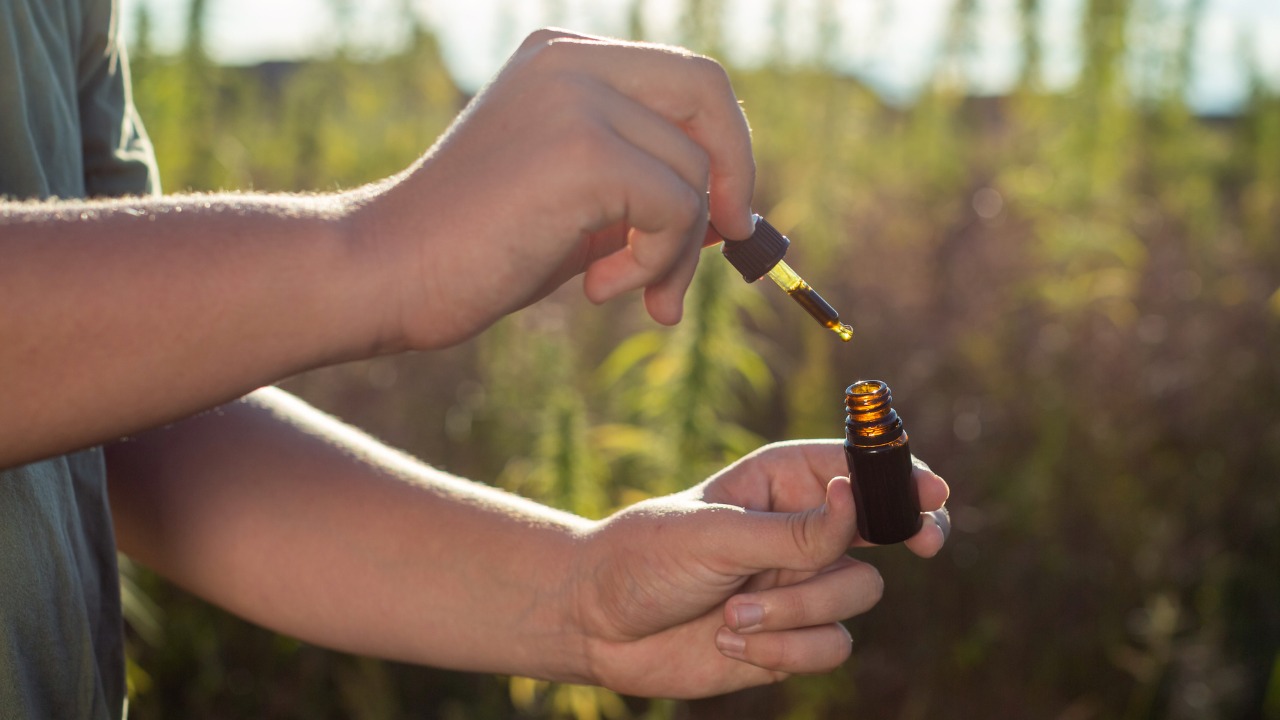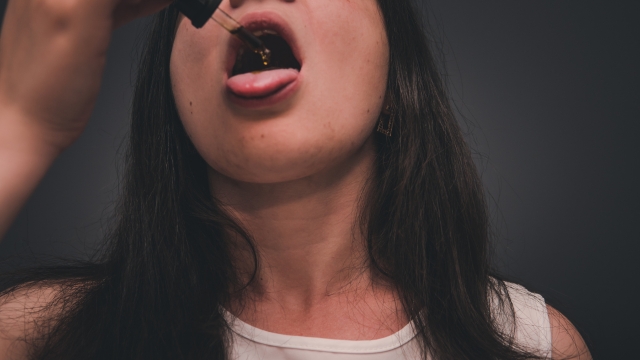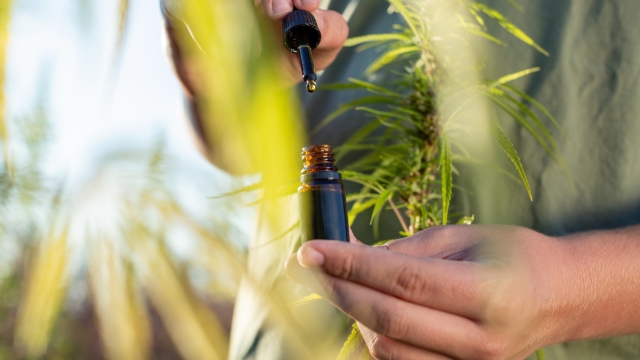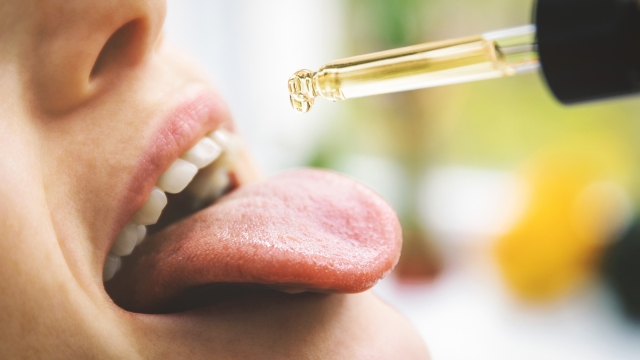Envision a life where you’re free from pain, anxiety, and restless nights. Start by uncovering the revitalizing magic of cannabidiol oil drops, then feel the transformation with capsules. As you embrace the comforting touch of a calming topical cream, allow us to accompany you on a path toward lasting relief and well-being, starting right here.
CBD stays in your system for about 8 hours to 3 months. However, factors like dosage, frequency, metabolism, and individual body characteristics can influence its stay length in your body.
So, let’s explore CBD’s interaction with your body and the factors influencing its duration. Delve into dosage, usage frequency, and metabolism, uncovering the intricate journey of CBD detection. Prepare for an enlightening experience as we unveil the nuanced impact of CBD – keep reading for an engrossing narrative of discovery.
Overview of Long Does CBD Stay In Your System
CBD’s impact is undeniable, highlighting potential health advantages such as anxiety relief, pain alleviation, and improved sleep. However, the duration of its presence hinges on variables like dosage, frequency of use, and one’s individual metabolism.
As we journey through this comprehensive guide, we’ll explore distinct timeframes for detecting CBD within the body’s systems – bloodstream, urine, saliva, and hair. Furthermore, we’ll unravel the intricate forces governing CBD’s breakdown and elimination, analyzing factors such as dosage, administration methods, and product excellence.
Definition of CBD (cannabidiol)
CBD, which stands for cannabidiol, is a natural element found in cannabis plants. Unlike THC (tetrahydrocannabinol), the component responsible for the “high,” CBD doesn’t induce that sensation. In fact, CBD oil offers a range of health benefits without any euphoric effects.
Moreover, it has been associated with alleviating anxiety, reducing depression, soothing pain and inflammation, and even improving sleep. Consequently, for individuals seeking these advantageous outcomes, contemplating a CBD-infused experience might prove to be an excellent choice.
How CBD Interacts With the Body
CBD engages with the body by influencing the endocannabinoid system (ECS), a vital system that keeps things balanced and in harmony. Transitioning to the potential perks of CBD, its interaction with the ECS brings about benefits such as reducing inflammation, enhancing sleep quality, and easing feelings of anxiety.
Moving on to how you consume CBD, it’s important to note that the method you choose impacts how long it remains in your system. Moreover, CBD is available in diverse forms, such as oils, tinctures, edibles, vapes, and topicals. And each boasts distinct rates of absorption and effectiveness.
For instance, vaping CBD offers rapid effects, albeit short-lived, while oils and tinctures undergo liver metabolism, gradually releasing their effects over an extended timeframe.
The Role of the Endocannabinoid System (ECS) In Maintaining Balance (Homeostasis)
The Endocannabinoid System (ECS) is important because it controls how our heart, brain, and immune system work. It’s all about keeping everything in balance.
Moreover, when we use CBD, it talks to the ECS by connecting with its receptors. And then it helps make some helpful substances called endocannabinoids. So this could be one reason why CBD might be good for our health.
CBD’s Influence on the ECS and Its Potential Benefits
Studies have shown that CBD might actually do some good things for the ECS. This compound may help lower inflammation, improve sleep, and calm anxiety.
Plus, when CBD talks to the ECS and helps make those special endocannabinoids, it could make a positive difference in how someone feels overall.
Different Forms of CBD – Variations in Absorption Rates and Bioavailability
CBD comes in various ways you can use, such as vaping, oils, tinctures, edibles, and products for your skin. Each method has its own quirks in terms of how quickly it gets into your body and how long its effects hang around.
For example, when you choose to vape CBD, it kicks in quickly, but the effects fade in about four hours. On the other hand, oils and tinctures take a detour through your liver, providing a steady stream of therapeutic compounds for at least eight hours.
Meanwhile, CBD creams and similar products take their sweet time getting into your system, and sometimes, they might not even make it into your bloodstream. Having this knowledge helps you select the right CBD approach based on what you want it to achieve and how long you’d like those effects to last.
Factors Affecting CBD Metabolism
Dosage, consumption method, and individual factors such as metabolism, body composition, age, gender, and overall health all play a role in how long CBD stays in your system. The following sections will delve deeper into these factors and their impact on CBD metabolism.
1. Dosage and Consumption Method
Factors affecting CBD metabolism also encompass dosage and consumption methods. Moreover, higher doses may overwhelm metabolic enzymes, thus affecting processing. Additionally, varying consumption techniques, like inhalation or ingestion, distinctly impact absorption rates and bioavailability.
For instance, inhalation offers quicker effects through direct lung entry, while ingestion involves slower absorption through digestion. Altogether, these variables contribute to the diverse ways CBD undergoes metabolism within the body.
Additionally, taking CBD on an empty stomach can lead to faster metabolism and excretion. On the other hand, taking it on a full stomach can slow down digestion.
2. Metabolism and Body Composition, Age, Gender, and Overall Health
CBD metabolism can vary due to metabolism speed linked to body composition. Additionally, higher muscle mass generally leads to quicker metabolism. Moreover, age plays a role, too; younger individuals metabolize CBD faster.
Furthermore, gender differences exist, with females often metabolizing cannabis slower. Additionally, overall health affects metabolism, as certain conditions or medications can impact CBD processing.
Moreover, the frequency of CBD intake can also affect how long it remains in the body. In fact, regular use potentially leads to substance accumulation in the body over time. Occasional use typically results in it clearing faster.
3. CBD Product Quality
The quality of the CBD product significantly impacts how long it lingers in your system. Good-quality CBD products generally maintain precise and consistent cannabidiol levels, influencing your body’s processing. On the other hand, lower-quality options could contain substances that disrupt your metabolism.
And so, to ensure safe and effective CBD use, opt for well-known brands that offer lab test results from independent facilities, confirming potency and purity.
Timeframes for CBD Detection in Various Body Systems
Understanding the duration that CBD remains detectable in different parts of the body. And this is especially true for individuals undergoing drug tests or those simply curious about its lingering presence.
Moving forward, we will delve into the estimated timeframes, exploring when CBD can be detected in blood, urine, saliva, and hair samples.
CBD in the Bloodstream
Once you’ve taken CBD, it can be identified in the blood for roughly 72 hours. However, this time frame is shaped by factors such as dosage, frequency of use, unique metabolism, and the specific consumption method.
To be more precise, within the bloodstream, CBD stays detectable for approximately 24 hours after ingestion. Keeping these considerations in mind becomes pivotal when contemplating the detection of CBD in the blood and its potential impact on upcoming blood tests.
CBD in Urine
When you consume CBD, it can be detected in your urine for approximately 5 to 7 days. And what’s intriguing is that this duration appears quite consistent, regardless of your intake quantity. However, if you’re someone who uses CBD regularly, your positive test results might persist for an extended period – possibly exceeding two weeks.
Now, switching gears to THC metabolites, their presence can be picked up by urine tests anywhere between three days after your last use and up to two weeks later. That’s quite a range to consider!
CBD in Saliva
Cannabidiol can be detected in saliva within minutes after consumption. And it can remain detectable for up to 36 hours, depending on the dosage and frequency of consumption.
CBD in Hair
Interestingly, CBD can actually be detected in hair samples for a remarkable period of three months. Factors like dosage, product quality, metabolism, and body composition can collectively shape how easily CBD gets spotted in your hair.
Factors Affecting CBD Elimination
In this section, we will discuss the half-life of CBD and the accumulation of this compound in the body with regular use.
1. Half-Life of CBD
People often find themselves wondering about the right CBD dosage. However, it’s important to remember that the half-life is simply the time it takes for the CBD’s strength to drop by half from its original level. Usually, the half-life falls within the range of 18 to 32 hours.
Moreover, what really matters when it comes to CBD’s half-life is how frequently you take it and how much you consume each time. On top of that, factors like your metabolism and general health can also play a role in how long CBD’s effects stick around.
2. Accumulation and Regular Use
When you use CBD on a regular basis, it can gradually accumulate in your body, lengthening the time needed for elimination. In contrast, individuals who use CBD occasionally or are beginners won’t experience this buildup, allowing them to clear it from their system more swiftly.
On the flip side, if you’re an occasional CBD user, your body will process and eliminate it more quickly.
Also read
How Do Vapes Work? A Comprehensive Guide to Vaporization
Special Considerations
When you’re using CBD, there are a few essential factors to keep in mind. And so, you need to think about the type of product you’re using and how it could interact with any other medications you might be on.
Now, as we move into this section, we’ll really delve into the contrasts between full-spectrum CBD and CBD isolate. We’ll specifically focus on THC levels and the implications for drug tests.
And not only that, but we’re also going to touch on how CBD is applied for medical reasons and explore any possible interactions it might have with other medications.
Full-Spectrum CBD vs. CBD Isolate
Full-spectrum CBD goodies capture all the natural stuff in the plant they come from, including THC. But here’s the exciting part: CBD isolate is like super pure CBD – they remove all the other cannabinoids.
Now, to up your odds of acing a drug test, going for CBD isolate and broad-spectrum CBD products is a clever choice. You see, these usually contain barely any THC or none at all.
Medical Use and Drug Interactions
Examining the ins and outs of CBD’s medical applications and how it interacts with medications is truly crucial. That’s why it’s wise to have a conversation with a healthcare professional before you jump into CBD usage. And the reason is cannabidiol might potentially interact with specific medications, making their guidance absolutely essential.
Moreover, it’s worth keeping in mind that CBD could trigger sensations like fatigue, queasiness, or shifts in your appetite. So, getting a firm grasp of these potential interactions and side effects holds significant importance. This is especially the case if you’re considering the use of CBD for medical purposes.
Final Takeaway – How Long Does CBD Stay in Your System
CBD is popular for its potential health benefits, but different factors play a role in determining its duration in the system. By promoting informed and responsible consumption, we can make the best decisions. Remember, knowledge is power – make sure to stay informed and use CBD responsibly.
Also read
Vaping Regulations Unveiled: How Old Do You Have to Be to Purchase Vapes?
Related Questions
Still have questions? Check out a couple of common ones below.
How do you flush CBD out of your system?
To flush CBD out of your system, eat high-fiber foods and consider taking supplements such as milk thistle.
Can I consume CBD with Delta 9?
Yes, but it results in strong euphoria. However, CBD might help lessen some of Delta 9’s mind-altering effects, which could reduce feelings of anxiety and paranoia.







